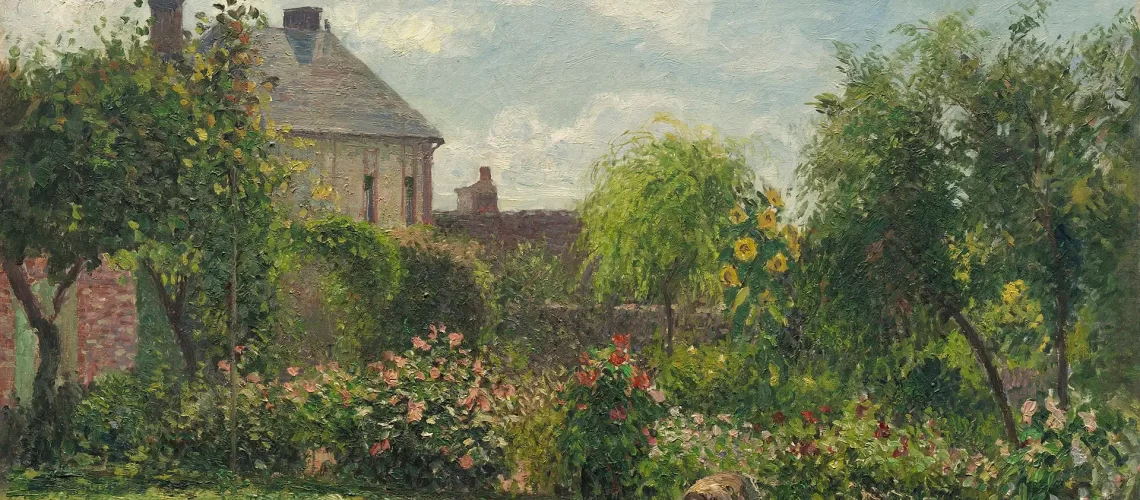The Art of Cataloging: The Beauty of a Comprehensive Catalog Raissone

Many people may not realize that you can’t just Google an artist to see all of their known artworks—especially when it comes to artists from the 20th century and earlier. Artworks are often tucked away in private collections, unrecorded, or even undiscovered. That’s where a catalogue raisonné comes in.
A catalogue raisonné is a comprehensive, carefully researched record of all known works by an artist. Compiling one is a monumental task that involves tracking down artworks, gathering detailed information, and verifying authenticity. Scholars dedicate years, even decades, to this process, meticulously documenting everything from paintings and drawings to lesser-known sketches and studies. When new works are discovered, they’re submitted to be reviewed and potentially added to the catalogue, keeping the artist’s legacy up-to-date.
The Making of a Catalogue Raisonné
Creating a catalogue raisonné is no easy feat. Authors and researchers often spend countless hours in archives, museums, and private collections, consulting experts and gathering information. They compare styles, analyze brushstrokes, and even scrutinize signatures to ensure each piece is correctly attributed to the artist. It’s a labor of love that requires a deep understanding of the artist’s work and incredible attention to detail.
But the process doesn’t stop once a catalogue is published. Art is a living history, and new works occasionally come to light. When this happens, the catalogue raisonné is updated to include these newly discovered pieces, making it an ever-evolving record of an artist’s complete body of work.
Why Catalogue Raisonnés Matter in Art Appraisal
For art appraisers, a catalogue raisonné is more than just a reference book—it’s an essential tool for verifying the authenticity and provenance of a work. When evaluating a piece, appraisers check the catalogue to see if the artwork is listed. If it is, the piece is generally accepted as authentic, carrying the validation of the scholars who compiled the catalogue. If it isn’t, further investigation is needed to determine its legitimacy.
A well-done catalogue raisonné also provides invaluable context about an artwork’s history, including previous exhibitions and literature references. This information can significantly impact an artwork’s value, helping appraisers provide accurate and well-supported valuations.
Notable Catalogue Raisonnés
Some catalogue raisonnés are so well-researched and respected that they become the gold standard for authenticating an artist’s work. Here are a few of the best:
Robert Descharnes and Gilles Néret’s Dalí: The Paintings – This comprehensive volume, often referred to as Field’s Dalí, meticulously documents Salvador Dalí’s surrealist paintings. It serves as an indispensable resource for anyone researching or appraising Dalí’s work.
E. B. Snollaerts and C. Durand-Ruel’s Pissarro: Critical Catalogue of Paintings – This catalogue raisonné of Camille Pissarro’s paintings is a definitive guide, offering extensive details on the artist’s contributions to Impressionism. It’s a go-to reference for verifying Pissarro’s works.
Rainer Michael Mason’s Paul Klee: Catalogue Raisonné – This multi-volume catalogue documents over 9,000 artworks by Swiss artist Paul Klee, offering a thorough look at his diverse and prolific career. It’s a key resource for understanding and appraising Klee’s work.
The Lasting Impact of a Catalogue Raisonné
Beyond serving as essential tools for authentication and valuation, catalogue raisonnés preserve the legacy of an artist’s work. They bring together all known pieces into one cohesive record, ensuring that future generations can fully appreciate the scope of an artist’s contributions. For collectors, appraisers, and art lovers alike, these volumes are more than just books—they’re gateways to understanding an artist’s life and work in depth.
Whether you’re an art enthusiast, a professional appraiser, or just curious about how art history is written, exploring a well-crafted catalogue raisonné can be a fascinating journey through an artist’s world. It’s where research meets discovery and where the full picture of an artist’s legacy comes to life.